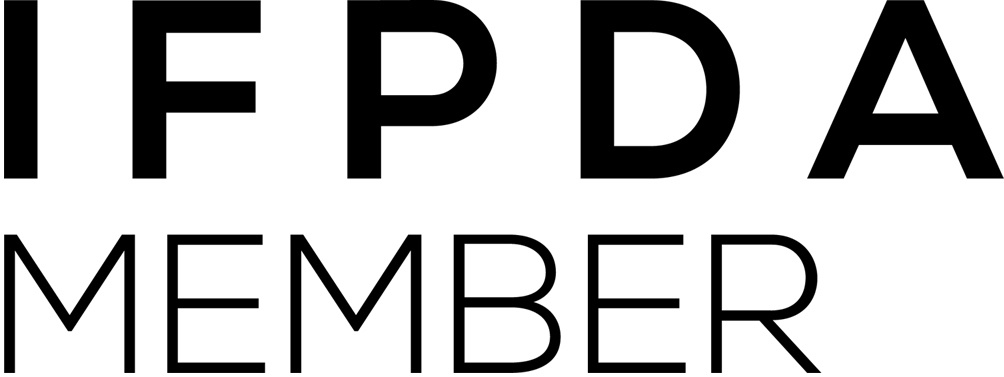Desmond Morris
The famous zoologist and best-selling author, Desmond Morris, is also the last surviving artist of the Surrealist movement. Whilst studying for his degree in zoology, at the University of Birmingham, Morris started making drawings under the microscope, of biological organisms. This indirectly inspired Morris to create, in the words of David Attenborough, a "menagerie of creatures that were all his own". Despite Morris' knowledge of biology, these bizarre creatures are purely invented and irrational. The artist explains that "they evolve on the canvas, and they belong in their own dimension". Indeed, he is keen to stress that the drawings are a chance to let his "imagination run free". However, this creative spontaneity belies their meticulous execution. While inspired by Joan Miró and Yves Tanguy, these 'biomorphs' - so-called by the artist - became Morris' own distinctive pictorial language, and have remained so ever since. During his studies at Birmingham, Morris befriended like-minded artists, and became associated with what turned out to be the last group of Surrealists in Britain. Headed by Conroy Maddox, members included Emmy Bridgwater, William Gear, and John Melville. After his first solo show in 1948, Morris won the support of ELT Mesens, and in 1950, shared a joint-exhibition in London with Miró, who would later visit him in London.
Despite this early promise, Surrealism was by now unfashionable, and he struggled to sell much of his work. Morris decided instead to focus on zoology - although he never stopped painting. He began a doctorate in animal behaviour at the University of Oxford, graduating in 1954, and it was in this field for which he became best-known. By the end of the decade, he had hosted hundreds of episodes of Zoo Time, a weekly programme for Granada TV, as well as Life in the Animal World, for the BBC. In 1957, with the support of Herbert Read and Roland Penrose, Morris curated an exhibition of paintings by chimpanzees, staged at the ICA (of which he would later serve as director). This landmark exhibition was the first time that zoology and fine art had come together, and it caused an international media sensation. The major American collector of Surrealist art, William Copley, flew in from New York to see the show, while some of the exhibits ended up in the private collections of Picasso and Miró. Morris subsequently wrote The Biology of Art, a pioneering study of the picture-making behaviour of chimpanzees and its relationship to human art. In 1967, Morris published The Naked Ape, a seminal text on human behaviour. It was an immediate success, and ranks among the top 100 best-selling books of all time. It has sold more than 12 million copies, and has never been out of print.
Though he achieved worldwide fame as an author, Morris' artworks were still very much overlooked during this time. Morris himself has said that it was only in the late 1980s that his 'double-life' as an artist gradually became more widely known. During this decade, his work had been selected for several museum shows of Surrealism, notably the British Council's Contrariwise, which toured England and Wales, and he later gained international exposure when included in Arturo Schwarz's Marcel Duchamp and other Iconoclasts, at the National Gallery of Modern Art in Rome. Schwarz owned several works by Morris, and his important collection of Dada and Surrealist art was showcased at the Israel Museum, in 2000. In 1987, Morris was taken on by the Mayor Gallery in London, which since the 1920s has specialised in promoting Surrealist art. Over the next decade, his paintings sold well, and gradually started to enter public collections. Swindon Museum purchased Girl Selling Flowers, painted whilst still a teenager, and based on his friend, the actress Diana Dors; Southampton City Art Gallery bought The Hermit Discovered; and The Jumping Three entered the collection of Birmingham Museums. In 2000, The Arena was acquired by the Tate. Painted in 1976, this vast, eerie scene, in which biomorphs are performing a ritual inspired by the sexual behaviour of humans, was described by Ruth Millington as a "Surrealist masterpiece". More recently, the National Galleries of Scotland purchased War Woman, a rare example of Morris' foray into object-painting. Following a trip to Paris in 1949, Morris exploited the use of the 'readymade', with found objects such as a door-knob and a cork fishing float, humorously incorporated into his painting. Humour often underpins much of his work, and Morris takes care to assign evocative titles to each finished piece.
Interest in Morris' artistic career remains strong, helped in part by the fact that he is now the last surviving Surrealist. In 2017, his paintings were the subject of a BBC Four documentary, The Secret Surrealist. Morris' first show at the Redfern Gallery, in 2018, coincided with the launch of his new, critically acclaimed book, The Lives of the Surrealists, of lively recollections of his friends and fellow Surrealists. The exhibition was primarily concerned with showcasing his works on paper, many of which were completed in the past five years. David Attenborough and Will Self contributed essays to the catalogue, and more than 100 drawings and paintings, spanning seven decades, were sold. These included Guitar Figure, of 2013, bought by the Reiff Collection, while several drawings, as well as The Dove, painted in 1948, were acquired by the Ashmolean Museum, Oxford - the first museum to stage an exhibition of Morris' work, back in 1952.
In June of this year Morris will be opening his own Institute of Visual Arts in Ireland, where he now lives. In addition to teaching facilities and a gallery for temporary exhibitions, there will also be a permanent Surrealist Gallery showcasing The Desmond Morris Collection. This will include a selection of his own works, works by other surrealists, surrealist documents and books, and an assembly of strange objects that he has collected over a period of 75 years.

